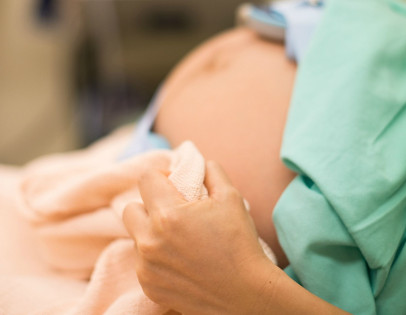Pregnant Women With Epilepsy May Face Increased Risk Of Death, Though Dying During Pregnancy Remains 'Exceedingly Rare'

Epilepsy is a neurological disorder marked by recurrent seizures — and in pregnant women it may be a marker of increased mortality.
Researchers from the Harvard T.H. Chan School of Public Health analyzed a nationwide inpatient sample, which means they systematically surveyed women with and without epilepsy who had been discharged from American hospitals. These discharges represent about 20 percent of all discharges in the United States, lead study author Dr. Thomas F. McElrath told JAMA Neurology. What he and his team found were women with epilepsy were at a 10-fold increased risk of mortality during delivery hospitalization in comparison to women without epilepsy.
Pregnant women with epilepsy also faced at an increased risk for other pregnancy complications, such as preeclampsia, preterm labor, and still birth. And when researchers went back to control for certain variables, like socioeconomic status, the type of hospital women were admitted to, the mother’s race, and hospital coding — a code for preeclampsia might mistakenly be a code for epilepsy — these risks persisted.
McElrath said these results translate in a couple different ways. The first is with regard to future research in that it will help focus research on replication and confirmation. If additional studies arrive at similar conclusions, it’ll be a step toward understanding any underlying mechanisms responsible for increased risk of complications.
“This is a population in which, when patients are on the labor floor, the antenna needs to be raised…this is a group that has a potentially unappreciated risk of harm during the delivery admission,” McElrath said. “Patients who carry the diagnosis of epilepsy and are anticipating a pregnancy should consider delivering in a facility that might be higher volume with perhaps a tertiary referral center.”
JAMA asked Dr. Jacqueline A. French, author of Risks of Epilepsy During Pregnancy: How Much Do We Really Know, to share her thoughts on the study’s findings — and she found while most women with epilepsy have uncomplicated pregnancies, this study correlates with others before it. Although, she noted, this study sets itself apart by finding mortality doesn’t occur during delivery, but outside delivery. French said deaths were related to poor seizure control, which might indicate women who are well-controlled during their pregnancy lower their risk of complication.
Both French and McElrath agree this research is “clinically relevant,” but it’s lacking by not determining each woman's exact cause of death; is it their epilepsy, or other unidentified risk factors? In order to prevent future complications, including death, researchers need to know the exact cause.
“It remains clinically relevant because it raises more questions…that these patients are not the same without epilepsy,” McElrath said. “They deserve a certain modicum of extra consideration.”
McElrath concluded even with this relevant research death during pregnancy is “exceedingly rare.” The procedure has “become quite safe” and pregnant women who have been diagnosed with epilepsy should not be scared. These women are simply a “category of patients, like patients with diabetes or patients with asthma.”
The takeaway, however, for women is they speak with their neurologist and perhaps choose obstetricians more comfortable with treating patients with their specific medical background. At the very least, McElrath said, seek a consultation.
Source: McElrath, T.F., et al. Mortality and Morbidity During Delivery Hospitalization Among Pregnant Women With Epilepsy in the United States. JAMA Neurology. 2015.
Published by Medicaldaily.com



























